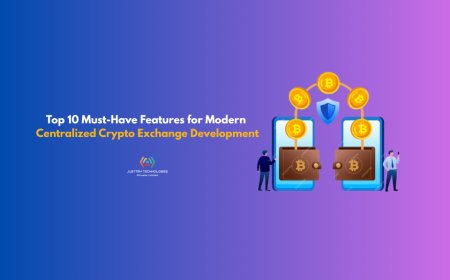Online vs Offline Stock Market Trading Courses: Which One Should You Choose?
If you're planning to learn stock trading seriously, one of the first decisions you’ll face is choosing between online and offline stock market trading courses. Both formats have their pros and cons, and what works for one person might not work for another.

If you're planning to learn stock trading seriously, one of the first decisions youll face is choosing between online and offline stock market trading courses. Both formats have their pros and cons, and what works for one person might not work for another.
This blog will give you a practical comparison of the two learning formats, so you can make the right decision based on your goals, learning style, and daily routine.
The Rise of Online Learning in Trading
With the explosion of edtech platforms, financial YouTubers, and self-paced learning options, online trading courses have become incredibly popularespecially since the pandemic. From video lessons to live Zoom sessions, the flexibility offered by online courses is unmatched.
However, offline trading courses (classroom-based) continue to thrive in cities like Mumbai, Delhi, and Bangalore, especially among students who prefer face-to-face interactions.
So how do you decide which one to go for? Lets compare them across the most important factors.
1.Convenience and Accessibility
Online Courses:
-
Learn anytime, from anywhere
-
No need to commute
-
Great for working professionals and students
-
Ideal if you live in a tier-2 or tier-3 city with no nearby institutes
Offline Courses:
-
Fixed time and location
-
Useful if you need a disciplined schedule
-
Limited to major cities or metro areas
Verdict: Online wins if flexibility matters to you.
2.Learning Environment and Discipline
Online Courses:
-
Self-paced learning
-
Requires self-discipline and focus
-
Easy to procrastinate without accountability
Offline Courses:
-
Structured classes
-
Peer pressure and scheduled sessions build discipline
-
Easier to stay consistent with your learning
Verdict: Offline is better if you struggle with self-discipline or need classroom motivation.
3.Interaction With Instructors
Online Courses:
-
Live sessions may offer Q&A
-
Some platforms have doubt-clearing groups or forums
-
Feedback is often delayed
Offline Courses:
-
Immediate feedback during classes
-
Easier to ask follow-up questions on the spot
-
Real-time discussion leads to deeper understanding
Verdict: Offline offers better real-time interaction.
4.Cost and Affordability
Online Courses:
-
Usually more affordable (?1,000 to ?10,000)
-
Often offer discounts or free trials
-
No travel or lodging costs
Offline Courses:
-
More expensive (?15,000 to ?50,000)
-
Costs include infrastructure, printed material, and trainer presence
-
Travel and accommodation may add to the total cost
Verdict: Online courses are more budget-friendly.
5.Content Quality and Updates
Online Courses:
-
Easily updated to reflect market changes
-
Modules can be refreshed regularly with new strategies or tools
-
Platforms offer lifetime access or repeat views
Offline Courses:
-
Rely on printed material or fixed presentations
-
Updates may be shared in follow-up seminars or new batches
-
Difficult to revisit past lectures unless recorded
Verdict: Online courses are better for keeping up with fast-changing markets.
6.Community and Networking
Online Courses:
-
Online communities (Telegram/WhatsApp groups)
-
Forums and discussion boards
-
Interaction depends on how engaged the community is
Offline Courses:
-
Easier to build strong connections with batchmates
-
Face-to-face discussions often lead to better networking
-
Opportunities for mentorship in person
Verdict: Offline offers deeper personal connections, though strong online communities can still be effective.
7.Learning Style and Personality Fit
Choose Online If You Are:
-
A self-learner who enjoys flexibility
-
Comfortable with technology
-
Living in a remote area
-
Short on time due to work or family obligations
Choose Offline If You Are:
-
Someone who learns better through physical interaction
-
Prone to distraction when learning from home
-
Looking for a routine or set schedule
-
Prefer learning from whiteboards and live demos
8.Job or Career-Oriented Goals
If your goal is to work in a financial role or become a SEBI-registered advisor, certified offline programs from institutions like NSE Academy, BSE Institute, or NISM may carry more weight.
However, several online platforms now offer certification too, especially those partnered with NSE, Zerodha Varsity, or Elearnmarkets.
Which One Is Right for You?
Ask yourself the following questions:
-
Do I need the flexibility to learn on my schedule?
-
Am I disciplined enough to follow through without classroom pressure?
-
Do I want a low-cost option to get started?
-
Or do I learn better when I interact directly with the instructor?
Theres no one-size-fits-all answer, but for most beginnersespecially those who are working full-time or living outside metro citiesonline trading courses offer better value, flexibility, and scalability.
Final Thoughts
Both online and offline stock market trading courses can help you build the knowledge and skills needed to trade profitably. What matters more is:
-
Choosing a course that aligns with your goals
-
Committing to regular practice
-
Applying what you learn in a disciplined way
Whether you learn in a classroom or from your laptop, your success will ultimately depend on your mindset, consistency, and willingness to learn.
Choose the path that fits your lifestyle, and remembereducation is the first trade you should never lose.

























